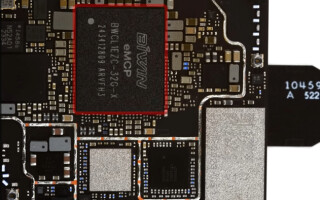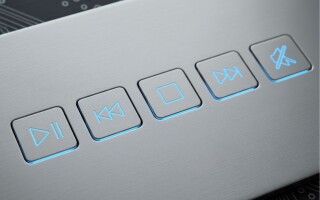Food, Clothing, Shelter, Power, Data
January 17, 2020
Blog
What defines a basic need has evolved as society grows more sophisticated and complex.
Once upon a time, the basic needs for a person to live were pretty simple, yet the expectation and realization of those basic needs is a matter that defines society itself. The ability to provide basic needs to their citizens is a yardstick that has been used to gauge the performance of any given community, city, or nation. But what defines a basic need has evolved as society grows more sophisticated and complex.
How granular should we go to define basic needs? That baseline itself can be hard to pin down in a complex society. Breathing, for example, is considered a life need, but until we had to worry about the impact of pollution, the issue hadn’t been a significant concern in the past. Water is another thing that people need to live, and has been the grounds for conflict and strife on many occasions throughout history, but is usually treated as a resource than a staple.
Throughout human history the basic needs for life have usually been considered to be simple. Food to eat, clothing to wear, and shelter from the elements. Aside from clothing, food and shelter are the same basic needs that every non-swimming living thing on this planet requires. Without sustenance and a place to sleep and protect oneself from environmental conditions, it is almost impossible to live.
However, even in the earliest days of humanity, this description wasn’t completely correct. Even ancient mankind had fire, for example, and without it are barely able to live better than the animals around them. One could make the argument that fire is also a basic human survival need, because humans are animals who use tools to change and make more habitable the world around them. So in reality we should consider the basics to at the minimum include food, clothing, shelter, and fire.
However, once one accepts the fact that by nature humans are defined by their use of tools and technology (however primitive), that opens up the definitions of basic needs a bit more. The need for blades and knives to cut things from wood to meat and defend oneself (as human claws and teeth are kind of pathetic), and other tools for manipulating the environment, are also critical to life. How do you hunt for, dig up, or otherwise procure and prepare the food needed to live?
Tools make mankind
Let’s take a look at that frozen guy they found a few years ago in 1991 in the Ötztal Alps. Named Ötzi, and also called the Iceman or the Similaun Man, the Man from Hauslabjoch, the Tyrolean Iceman, and the Hauslabjoch mummy, this well-preserved natural mummy of a man who lived between 3400 and 3100 BCE can tell us a lot about basic human needs in the context of a pre-industrial society.
When found, Ötzi wore a cloak of woven grass, a coat, a belt, a pair of leggings, as well as a loincloth and shoes, all made of leather of different skins. He also wore a bearskin cap. The shoes (with laces) were so complex, many researchers believe his society was sophisticated enough to have a cobbler who made shoes for others.
On the tool side, He also had a pouch sewn to his belt that held items like a scraper, drill, flint flake, bone awl, and dried fungus to use as tinder for fire-starting, along with flint and pyrite for creating sparks. To fill out his kit, Ötzi had an unfinished longbow, a quiver made deerskin with stone-tipped and fletched arrows, a copper axe with a wooden handle, and a chert-bladed wood-handled knife.
So now we should really add to the most rudimentary definition of basic human needs, making the basic staples now food, clothing, shelter, fire, and tools. No human can really live as a human without these things, and if they do not have them they cannot properly exist without external maintenance. Without fire and tools, humans are no better than animals, and must live as such.
Modern needs
A mature society also has advanced needs, and sophisticated ways to address them. Food, clothing, shelter, fire, and tools grow more complex and take on new forms. Food becomes more and more processed, clothing gets chic, shelter becomes buildings, fire becomes electricity, and tools have expanded to include our information-driven societal infrastructure.
Just as Ötzi travelled with the accutroments of what were the human basics of the time, modern humans have their own versions of everything that ancient person was found with. We carry pocket knives, lighters, flashlights, pens, and a plethora of personal tools, as well as the digital devices needed to function in modern society. Just as the Iceman wouldn’t be without the means to hunt and create fire, today’s member of society cannot function in any real way without personal electronics.
This is no small matter. Many consider televisions, smartphones, and computers specialty items, yet without them in today’s world a person is as useless as a primitive human without the tools they needed to survive in their times. Keeping up to date on what is happening, having the ability to interact with others, and being able to communicate and work in a data-driven environment is just as important as having clothes on your back and a roof over your head.
Looking forward
This definition of the basic needs to function in society will continue to migrate as society continues to develop. For example, one day people might argue that without brain implants one can’t function in society, or be unable to compete in the job market. The bottom line is that what is needed to function in our world changes as our ability to create better tools and techniques to address it does. What is possible also defines what is necessary.




